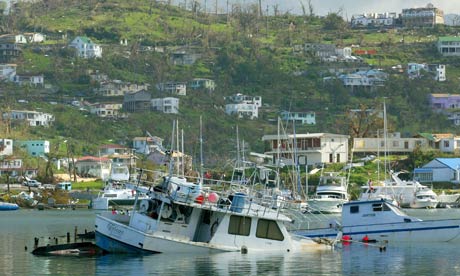The Guardian - 01-Jul-2013

s government stopped making payments to private creditors. Roughly 40% of the debt is owed to private bondholders, and another 40% to multilateral institutions such as the IMF, World Bank, Caribbean Development Bank and Inter-American Development Bank. The remainder is on the books of governments, including Taiwan, Kuwait and oil-rich neighbour Trinidad and Tobago. As there is no standard rules-based...
The Wall Street Journal - 26-Sep-2014
The craft of opposition research—finding information that might put an opponent in a negative light—has long been a staple of political campaigns. This year, independent groups are taking a leading role....
The Wall Street Journal - 26-Sep-2014
Cynthia Quarterman, a top U.S. safety regulator tasked with handling the U.S. government's response to a string of oil-train crashes in recent years, is stepping down....
The Wall Street Journal - 26-Sep-2014
The Los Angeles City Council has approved one of the nation's highest minimum wages for workers at the city's large hotels....
The Wall Street Journal - 26-Sep-2014
The U.S. government will pay the Navajo Nation $554 million to settle long-standing claims that it mismanaged funds and natural resources on the tribe's reservation for years....
The Wall Street Journal - 26-Sep-2014
Connecticut gubernatorial candidate Joe Visconti opposes the state's new gun restrictions, and he has an online commercial that shows him riding in a 1974 Pontiac convertible with rifles fixed to the rear fenders. ...
The Wall Street Journal - 26-Sep-2014
The U.S. and Arab allies launched a second major wave of airstrikes in Syria targeting mobile oil refineries controlled by Islamic State, the Pentagon said....

